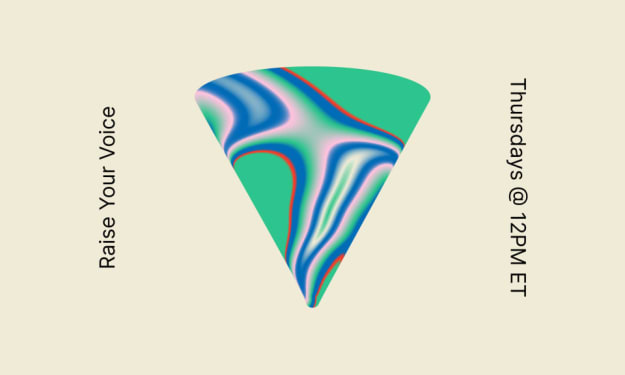Introducing: The Google Generation
A new twist on parenting

A new twist on parenting
Note the date. Today, I am coining a new phrase–Google Generation.
This is not the same as “Generation Google” which attempts to categorize a generation of younger folks who are supposedly more adept at Google skills than their elders.*
No, I’m describing the subset of children whose parents use Google to help raise them.
By that rubric, my wife and I are part of the Google Generation. We are not identified by our personal age, but by the era in which we’re raising our children, and the technology with which we do so.
Compared to many parents, I’m someone who could be called an “older dad.”
I remember seeing the Dr. Spock baby book on the family bookshelf. Nowadays, Dr. Spock has been largely dismissed and replaced with dozens of other parenting philosophies and trends. Every decade has a new style of parenting. My wife has advanced degrees in social work and probably knows more about parenting than a lot of other new parents, but babyhood can throw a lot of curveballs not covered in textbooks and work experience.
When my wife was pregnant, we picked up a couple of books on pregnancy and infant care. I can’t say we were entirely well served by them.
A rare instance in which books let us down.
It seemed, instead, that whenever we had a question about my wife’s pregnancy or Our son’s infancy, we turned to Google.
- “Google, what is the normal temperature for a baby?
- “Google, how much formula should one give a two-week infant at one time?
- “Google, what is the recommended method for storing breast milk?”
- “Google, what are the pooping habits of a three-week old?”
- “Google, what is thrush?” (It did not turn out to be thrush.)
- “Google, why is the dog licking the baby? Is that bad?”
And the list goes on. While Google itself did not necessarily provide all the answers, it pointed to many reliable resources with answers to our various questions.
Separating good from bad
We learned early not to go to Yahoo Answers as they are just the worst. For some reason, British parenting forums were the best. Those Brits rarely engaged in the same fear-mongering many public-input advice sites in the US offered, but instead tended to be pretty laid back and calm in providing useful, same advice.
As always, one should always be careful about anything found online. Consider these tips for responsible Googling:
- If reading an advice forum, is it moderated or can anyone post anything without oversight? If unmoderated, take advice with caution.
- If on a forum, do there seem to be a lot of anti-vaxxers, science deniers, conspiracy buffs or people who advocate only alternative medicine? Steer clear.
- Is the website sponsored by a business or organization promoting a specific product or treatment? You are probably not getting all of the info you need.
- Can you find three or more search results from non-biased sources giving you the same or similar answer to your question? The more confirmation, the better.
- Who is answering your question? Is it a doctor with verifiable credentials or similar expert? Anyone can write a blog post, but not all advice should be treated equally. Even my own.
- Is your answer coming from a celebrity? Pass. Even celebrity doctors are suspect.
- Beware of phrases such as: “The truth behind…” or “What doctors don’t want you to know about...” or “The secret of…”
- Be on the lookout for websites that include links to click-bait articles. They are not your friends.

We’re no fools
Google is not our only resource by any means. Like most infants, our son had his series of early childhood medical exams and we arrived to these exams with lists of questions and recommendations. I’ve yet to meet a doctor or nurse who isn’t willing to bend over backwards to help you be a better parent.
So far, so good. We have a happy, healthy child.
And while we’re talking about getting advice online, here are some things Google does not advise:
- Cleaning baby by hosing it down in backyard
- Letting the baby do free weights without a spotter
- Challenging the baby’s political views
- Offering the baby cigarettes (vaping is also not recommended)
- Accepting smokes offered by the baby (jury is still out about accepting vapes, but I’m still thinking no)
- Letting the baby drive, no matter how loud he cries
- Letting the baby drive no matter how open-minded the golf course is
- Misunderstanding (willfully or not) the term “baby sling”
We’re going to make mistakes. Everyone does.
But we’re minimizing the chances of mistakes the best we can. We don’t and won’t rely solely upon Google. There are the doctors and nurses, friends and family who have been through what we’re going through, and there’s also the dog. (The dog always suggests sniffing the baby’s butt and going out to the yard to eat grass. We’ll tuck that bit of advice somewhere in back… just in case.)
So, yes… I’m coining the phrase Google Generation. Its time has come.**
Cheers!
*I question this assertion. With 35 years of computer and research experience, I am a goddamn Google ninja and I defy anyone younger than me to challenge my Google-Fu.
**I also invented the term "chillax" back in the early 80s, but never announced it publicly. I missed out on a ton of sweet trademark deals. That’s not going to happen again.






Comments
There are no comments for this story
Be the first to respond and start the conversation.